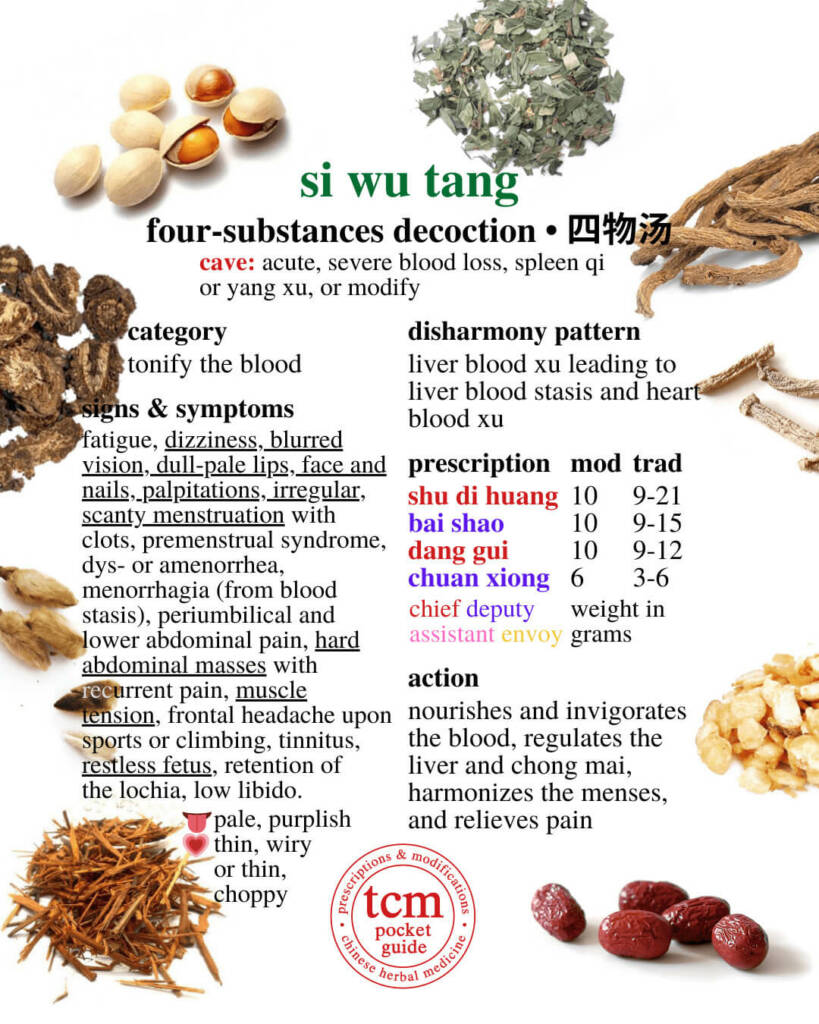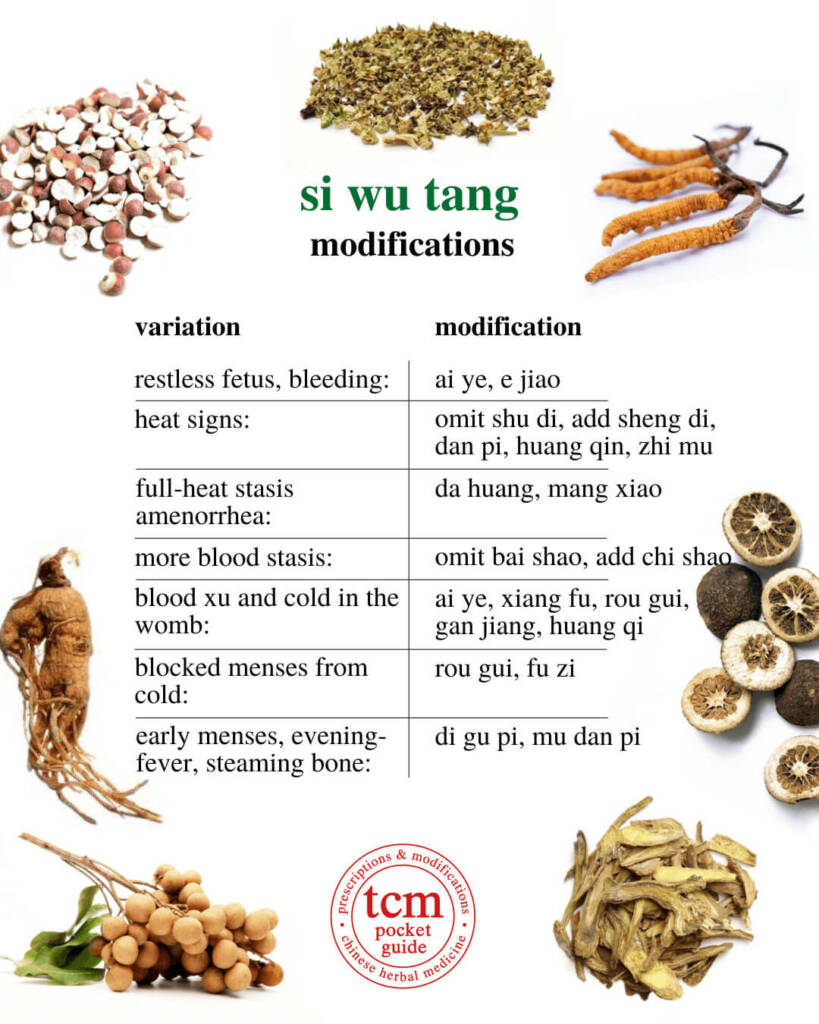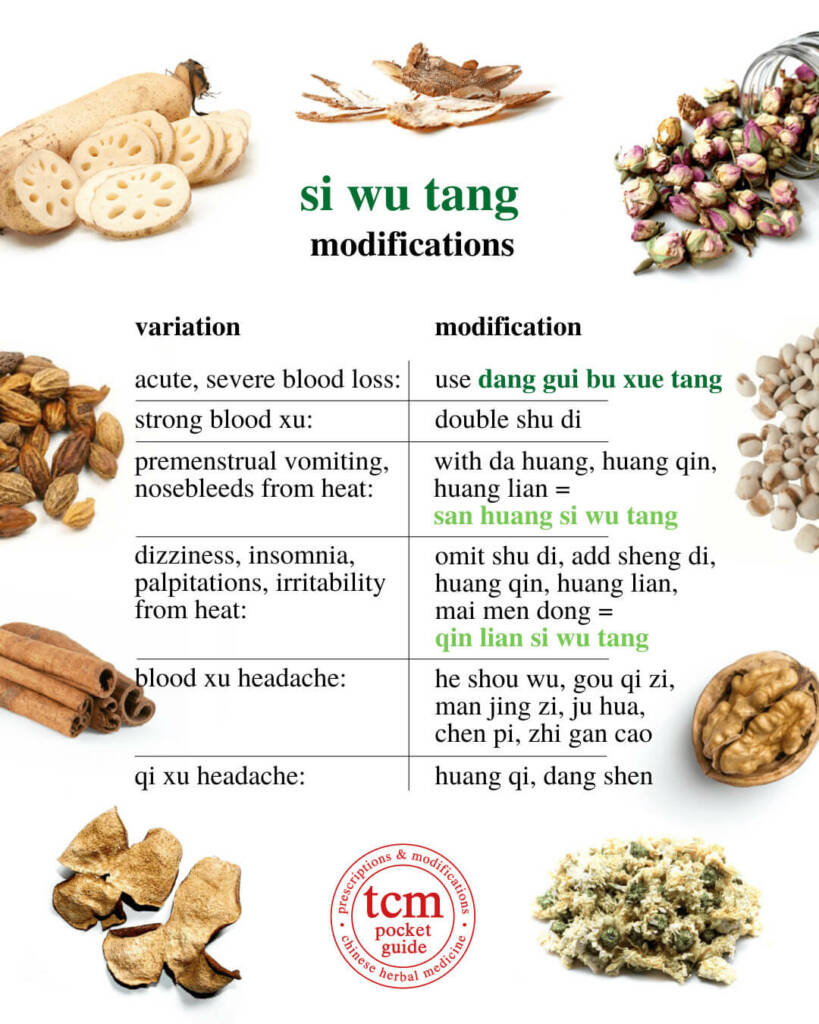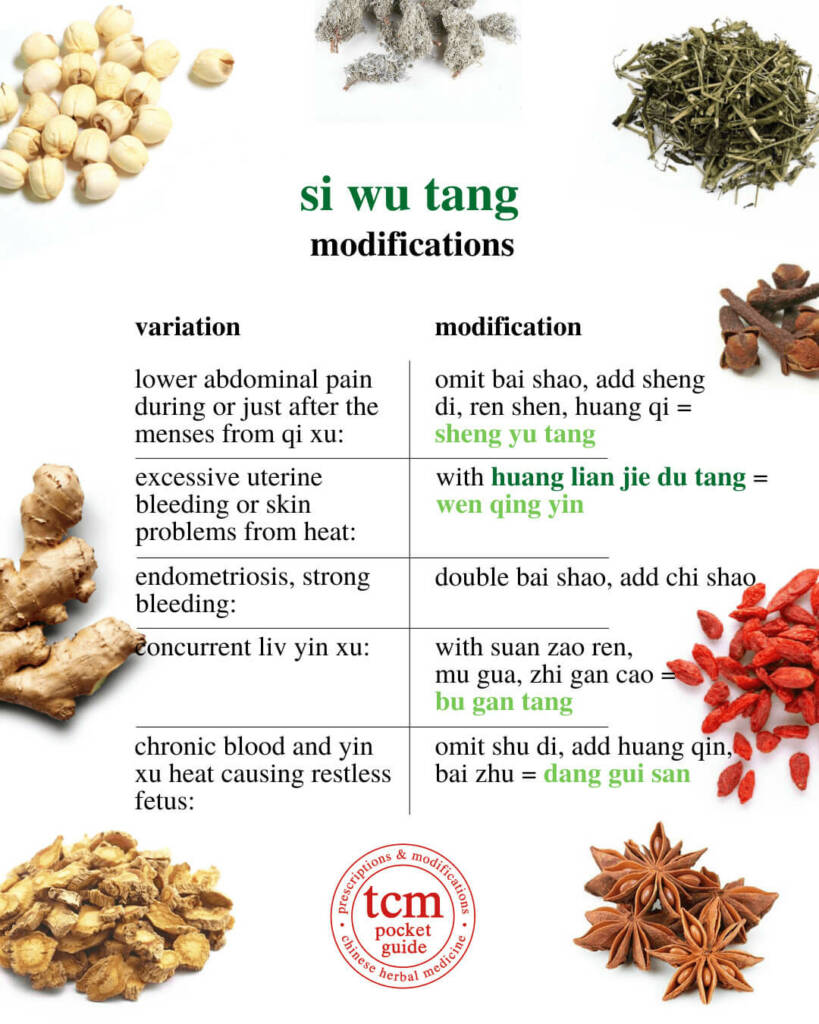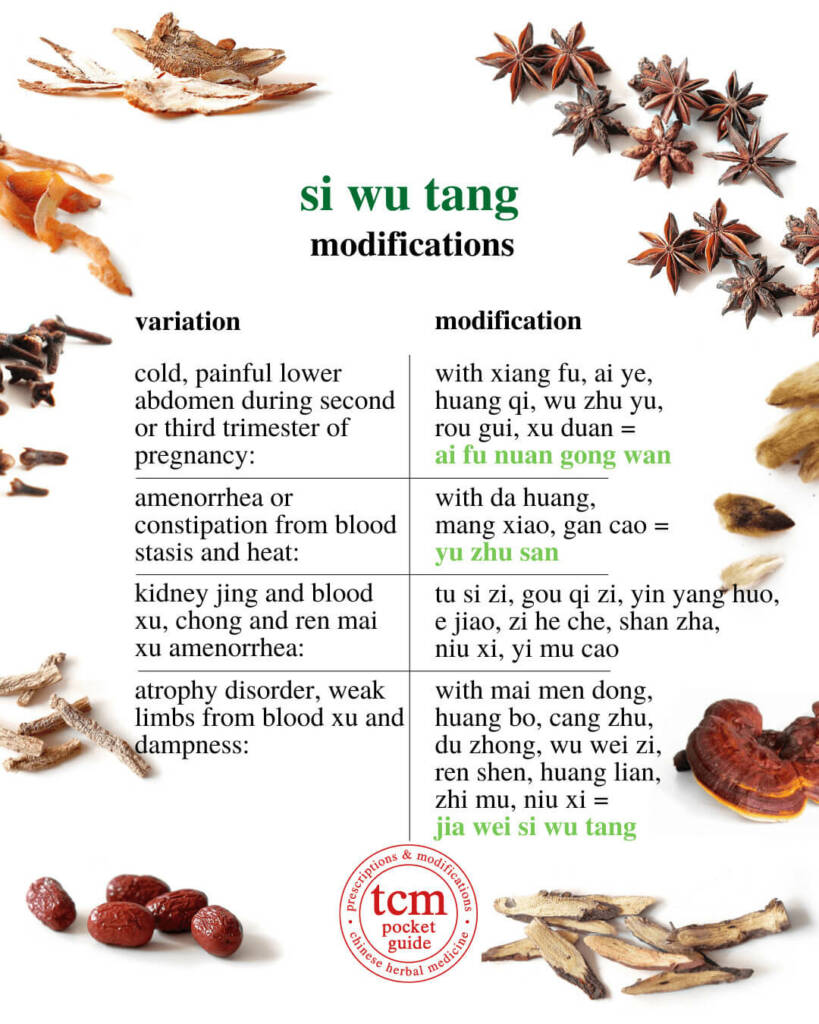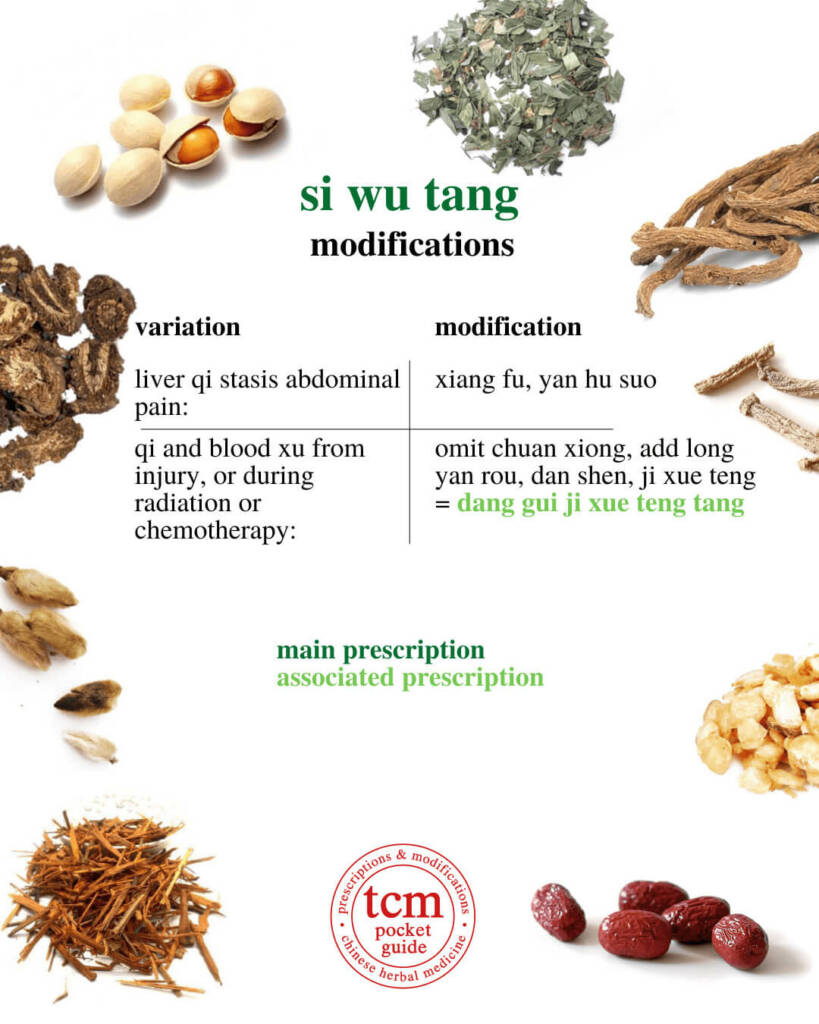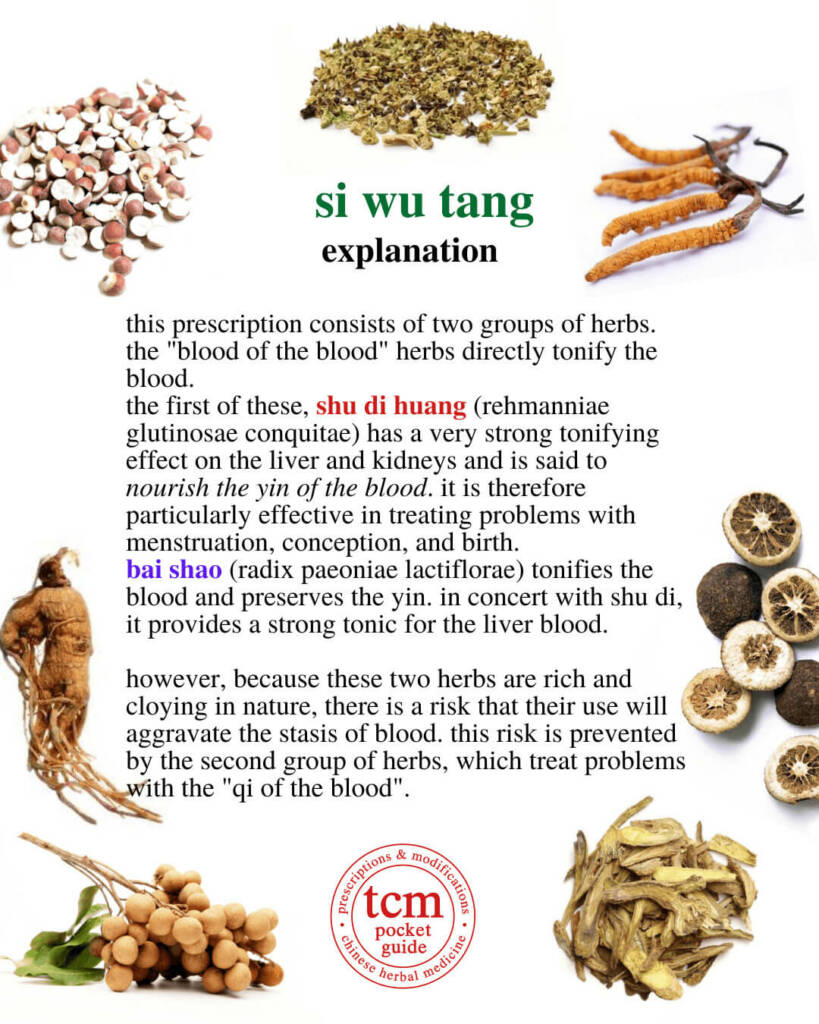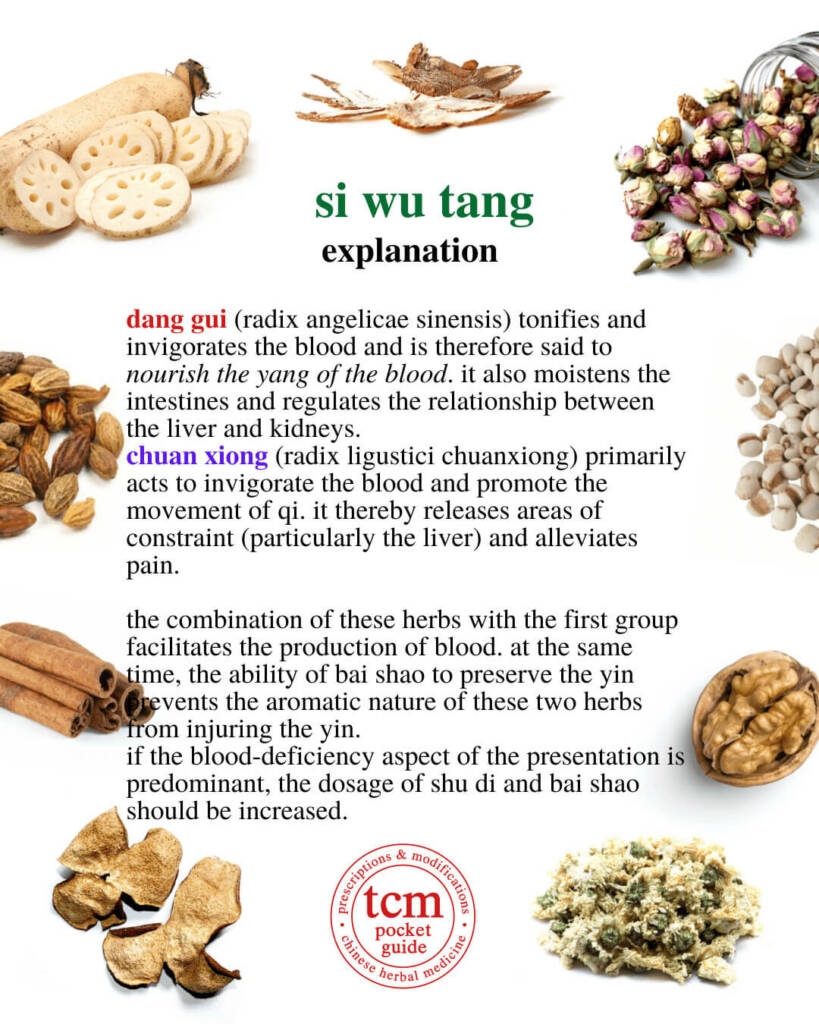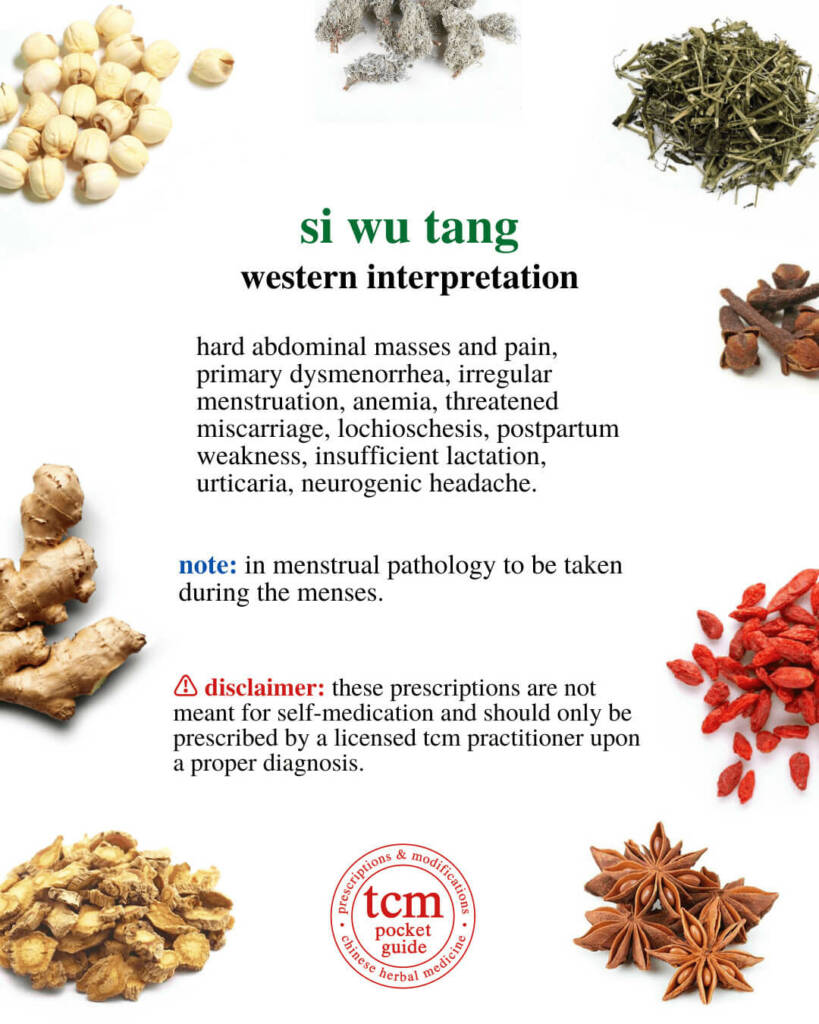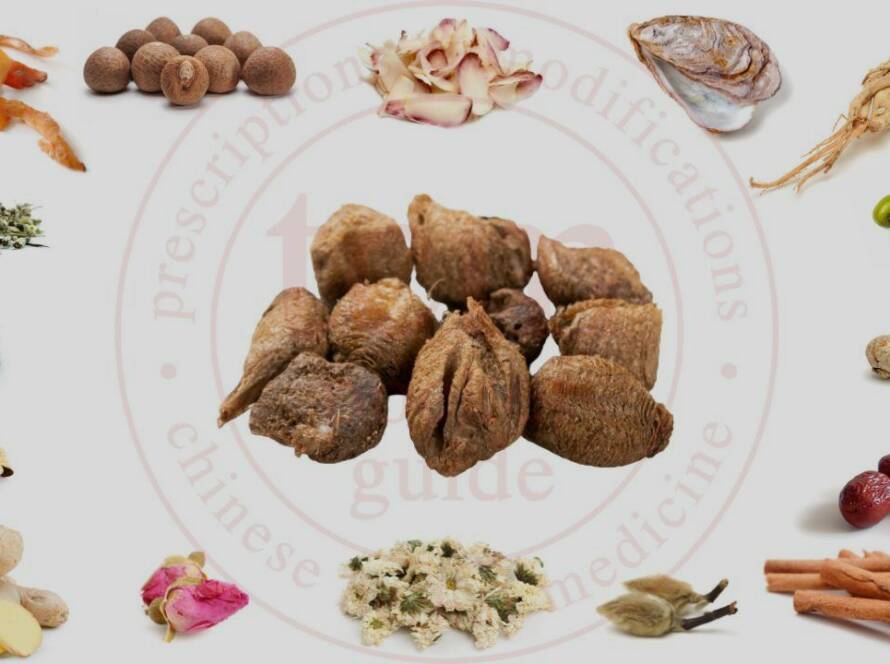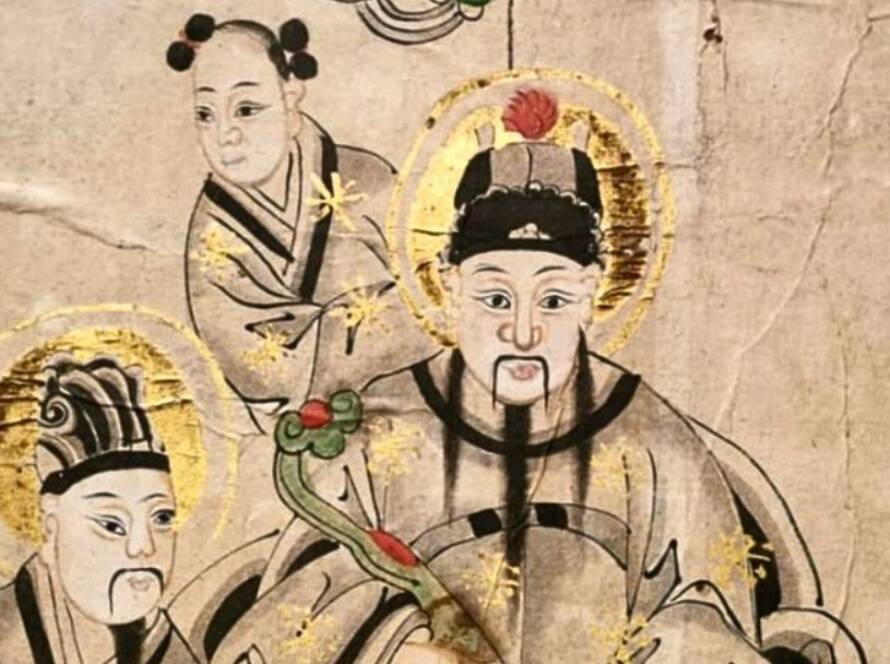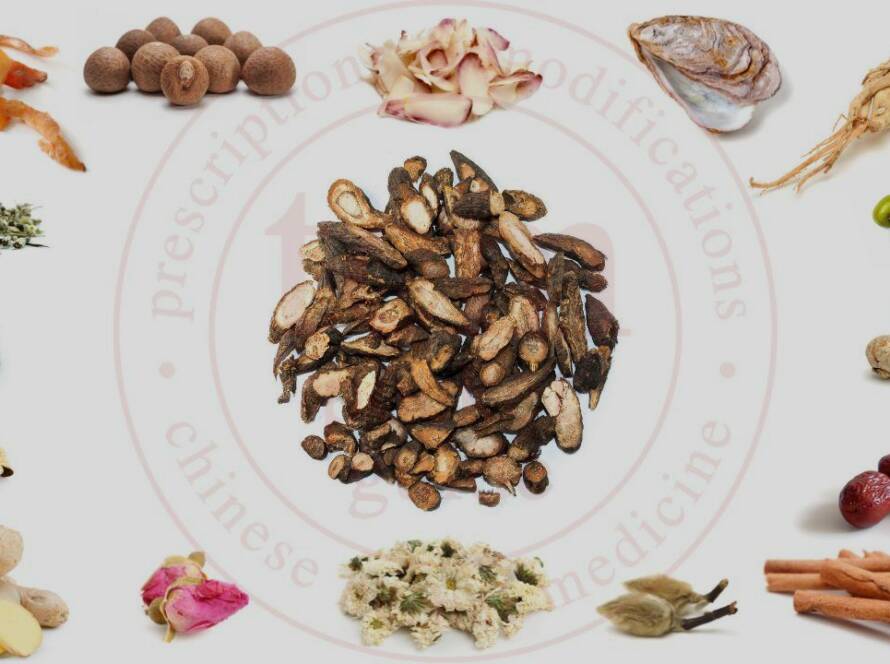sì wù tāng is used for patterns with
liver blood deficiency leading to liver blood stasis and heart blood deficiency, liver wind from liver blood deficiency, chong mai and ren mai deficiency.
symptoms indicating the use of sì wù tāng
fatigue, dizziness, blurred vision, pale, dull complexion, pale nails, pale lips, muscle tension, tremor, tics, irregular menstruation with little flow, spotting of pale blood, amenorrhea, restless fetus with bleeding, periumbilical pain, lower abdominal pain, hard abdominal masses, vertigo, tinnitus, insomnia, dry hair, dry skin, possibly five-heart heat, palpitations, frontal headache.
western interpretation of sì wù tāng
hard abdominal masses and pain, primary dysmenorrhea, irregular menstruation, anemia, threatened miscarriage, lochioschesis, postpartum weakness, insufficient lactation, urticaria, neurogenic headache.
explanation of the mechanism
this is blood deficiency, primarily of the liver. when the liver blood is deficient it is unable to rise and supply nourishment to the head. this manifests as dizziness and a lusterless complexion. the liver’s ability to supply its associated organ – the eyes – and tissue – sinews – is also impaired, which leads to blurred vision or chronic eye strain and generalized muscle tension. the health of the liver is reflected in the nails. when the liver blood is deficient, the nails become soft, dry, lusterless, wretched.
a normal menstrual cycle depends on the liver to provide and shut off the flow of blood at the appropriate times. when the liver blood is deficient, the menses are typically irregular with a scanty flow. there may even be amenorrhea. however, when the blood becomes disordered, menorrhagia may occur.
when the blood is deficient it does not move well, and there is a tendency of blood stasis to develop. this commonly manifests as periumbilical and lower abdominal pain, often occurring at the onset of menstruation, which is due to stasis and insufficiency of blood in the womb. this same process can also lead to hard abdominal masses with recurrent pain, restless fetus, or lochioschesis.
the heart is also dependent on the liver blood. when it is deficient, one may experience palpitations. the pale tongue reflects blood deficiency, as does the thin pulse. the wiry or choppy quality of the pulse, which almost always accompanies this condition, signals the stasis of blood and demonstrates the link between blood deficieny and stasis.
(bensky & barolet)

created with love in switzerland 🇨🇭
feel free to share this content:


